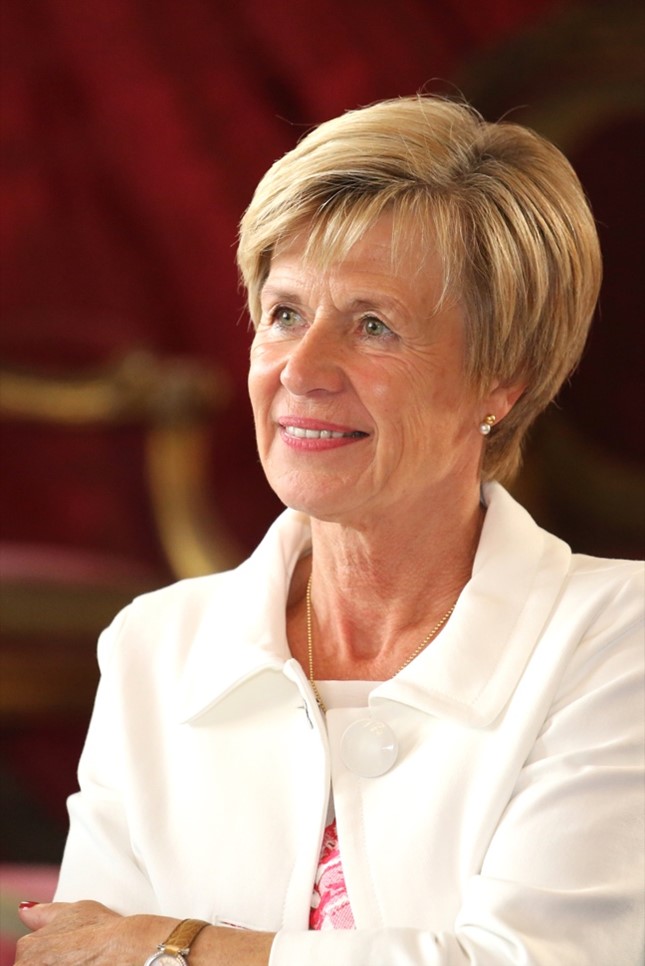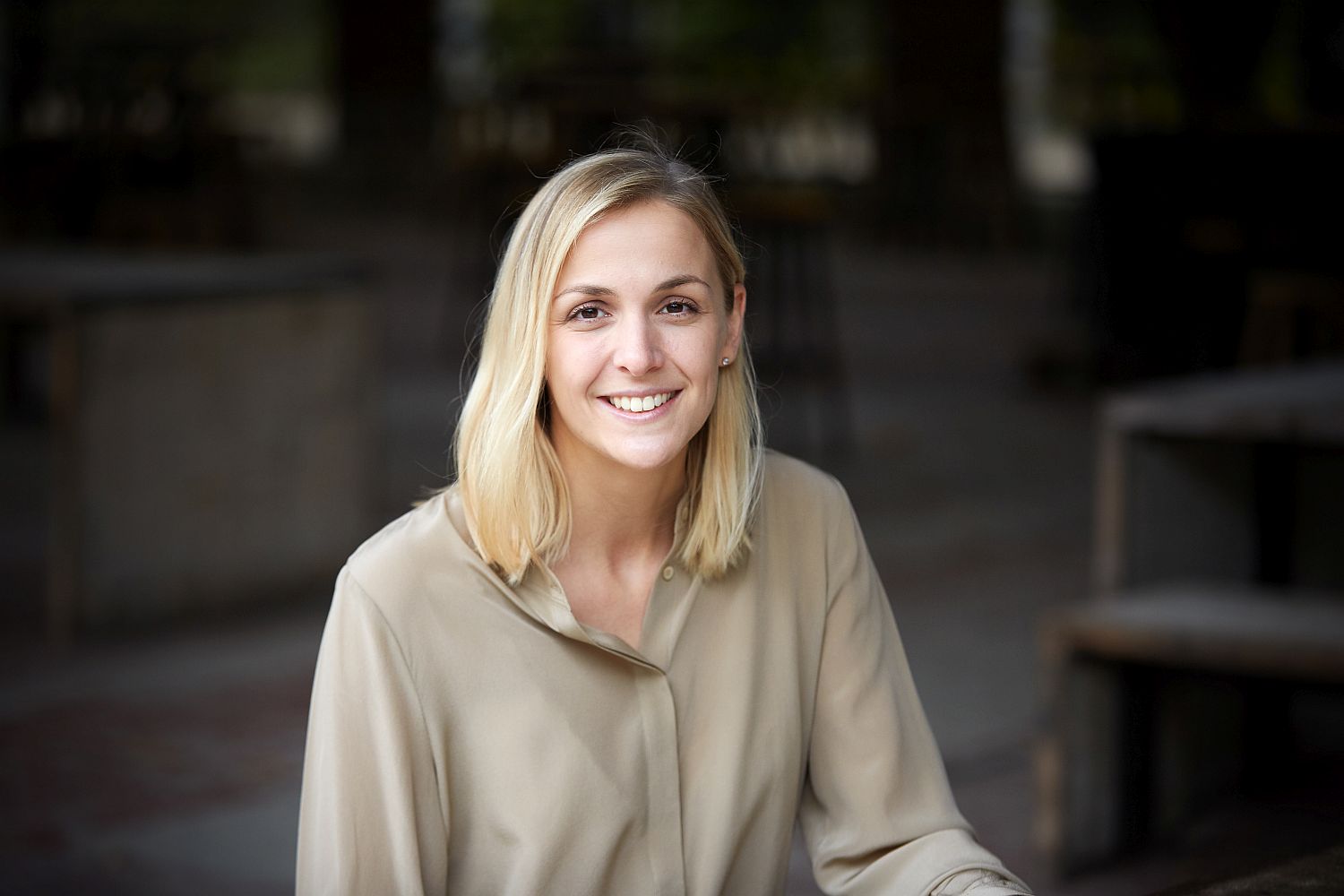Anne De Paepe - VGP Foundation board member
Aneta Vyšehradová, VGP Foundation Administrator, interviewed Prof. Dr. Anne De Paepe, a member of VGP Foundation’s board of directors, about her ambitions and expectations at our foundation
When did you first hear about VGP, and what made you decide to become a board member of the VGP Foundation?
I learned about the Foundation around 2 years ago as part of my responsibility as Rector of Ghent University, where Hugo Van Geet was a member of the Board of Directors. He made me aware of the mission of the VGP Foundation, which attracted my interest.
Then I met with Jan Van Geet in 2019. He described his ideas, what he wanted to achieve with the VGP Foundation, and the teams he wanted to develop. I must say I was very impressed, it appealed to me and I wanted to lend my support immediately. We discussed the Foundation’s various initiatives, and he mentioned the environmental reserve, nature conservation and cultural heritage teams.
With my background, especially in socio-educational projects, I felt I could add value and a social component to the Foundation’s goals and teams.
I appreciated that the Foundation’s activities all serve to create a better world, a better environment, and a better society in different ways. I believe I have reached a point in my career where I can use the experience that I have built up over the years to invest in these goals.
From your professional background and especially your engagement as board member of TAJO, you have a lot of experience and expertise with education and childcare, one of the main areas of interest for the VGP Foundation. How will you bring this experience into the Foundation’s work?
TAJO is the abbreviation for a talent studio for young people. Jan Van Geet asked us to present concrete projects or proposals which could both be implemented and embody what he had in mind. From my point of view, TAJO is just such a project in the socio-educational field. Consequently, I decided to present the TAJO project to the Board of Directors and explained its aims to convince them to make a concrete investment in the future of socially disadvantaged children. It was an excellent example of how to meet the aim of promoting the socio-educational goals that VGP has set for itself.
Prof. Dr. Anne De Paepe is currently Chairperson of the Board of Directors of the Ghent University Association, Honorary Rector of Ghent University and Professor of Human & Medical Genetics of the Faculty of Medicine & Health Sciences at Ghent University. An expert in the field of Rare Hereditary Diseases and Medical Genetics, she developed the Ghent University Centre for Medical Genetics into an internationally renowned institution where more than 200 people are researching hereditary diseases today. Since 2019 she has been actively involved with TAJO as a Board member, supporting disadvantaged children in the greater Ghent-area in Belgium.

Could you describe the project in more detail?
It is an initiative which aims at promoting the development of children between the ages of 10 and 14. This age category is important because we need to reach out to children at a young age to make a real difference and have an impact on their future and education. And the project aims to offer them additional educational workshops over a period of 3 years, every Saturday. The children must commit themselves to regularly participate during these 3 years and to follow this programme of very engaged and practical workshops closely. The aim on our part is to convince the children that it is important for them to learn and continue to educate themselves, so that they can later find employment and improve their own social situation.
During my professional career, I have been able to discern repeatedly that education is a decisive factor in determining what social opportunities and which social environments are available to an individual. Investing in education is a key way of improving the prospects of those who come from socially disadvantaged backgrounds.
We really try to get the young people excited about the learning process, to convince them that it is important to learn a profession, that they need to take their futures into their own hands, and that they need to believe in themselves. We often see that many children from these circumstances have very low self-confidence and a poor self-image, so we really try to invest in this aspect of their personality.
The practical implementation is done through workshops which are focused on a specific theme or professional discipline and which require teamwork from the children. For 3 weeks the children “get to grips with” the theoretical content and in the fourth week they get to put what they have learned into practice and see how jobs are done. The project is of course very demanding; it requires a lot of good will and expertise from many people. For all these sessions on Saturdays we have teachers on a voluntary basis. They must provide really good teaching and training in their sessions.
How do you find these teachers? And how do you identify the children?
To reach the children, we identify them within specific areas in Ghent where we know that there are many socially disadvantaged children. We also work closely with local schools,
who know the background, know the families, and help us to find out which children can benefit from this programme. All children are interviewed in advance and tested for their motivation for the programme. This also involves close contact with the parents, as it is very important that they are also supportive in this process.
The teachers have different backgrounds – some come from a university or college, others from companies or from governmental organisations. There is a very wide variety of people who are involved on a voluntary basis. It is also crucial to have a coordinator with a professional educational background participating every Saturday.
They take care of all organisational matters and are in close contact with the children. These coordinators give the children guidance, and that is important for the project’s success. The Foundation has committed itself to providing financial support in the coming years with the intention of investing in the future of these children. I am grateful to the Foundation for recognising the importance of this programme and being willing to support this project.
Will there soon be projects in other European countries, too?
TAJO is the starting point; we want to learn from that project. But obviously these challenges are not only present in Ghent but in other Belgian
and European cities as well.
It is absolutely the aim of the Foundation not to limit this kind of support to the Ghent region, but to start similar projects in other European countries in the future. "
How do you measure success?
One of the parameters is that the children stay involved in the programme and there is no drop-out. We are now 1 year into the programme, and the result has been successful. The children were 100% committed, spoke very enthusiastically about the project at home and with peers. The children are our principal ambassadors.
So far, we have achieved what we wanted to achieve. Surely, there will be further success criteria. For example, we will ask: How many will reach school graduation successfully? How many children will get a job afterwards? And how many will get involved in the future to support the project?
How many children are engaged in the project?
We started with 50 children, which may not seem like a great deal, but, with regards to the intensity and quality of the program, this represents quite a commitment. We will now expand the project to 100 children, and the target going forward is 300–500 children in the Ghent area. This is ambitious! We will see what the future brings. It is our clear ambition to continue to expand the whole programme in the Ghent region and to support similar initiatives also in other European countries.

Aneta Vyšehradová
VGP Foundation Administrator
Aneta is a graduate from Masaryk University in Brno, where she obtained her diploma in English and French languages. She has multiple experiences in working with children as a teacher and has been involved in various children’s free time activities, mostly related to personal development and building a positive attitude towards nature. Aneta is currently responsible for the administration of the VGP Foundation, where she is in charge of identifying new projects, daily management, internal and external communication and serving as a secretary to the Board of Directors. Children, nature and art have been her passions for many years, and she believes that it is by giving to others that we receive the most.